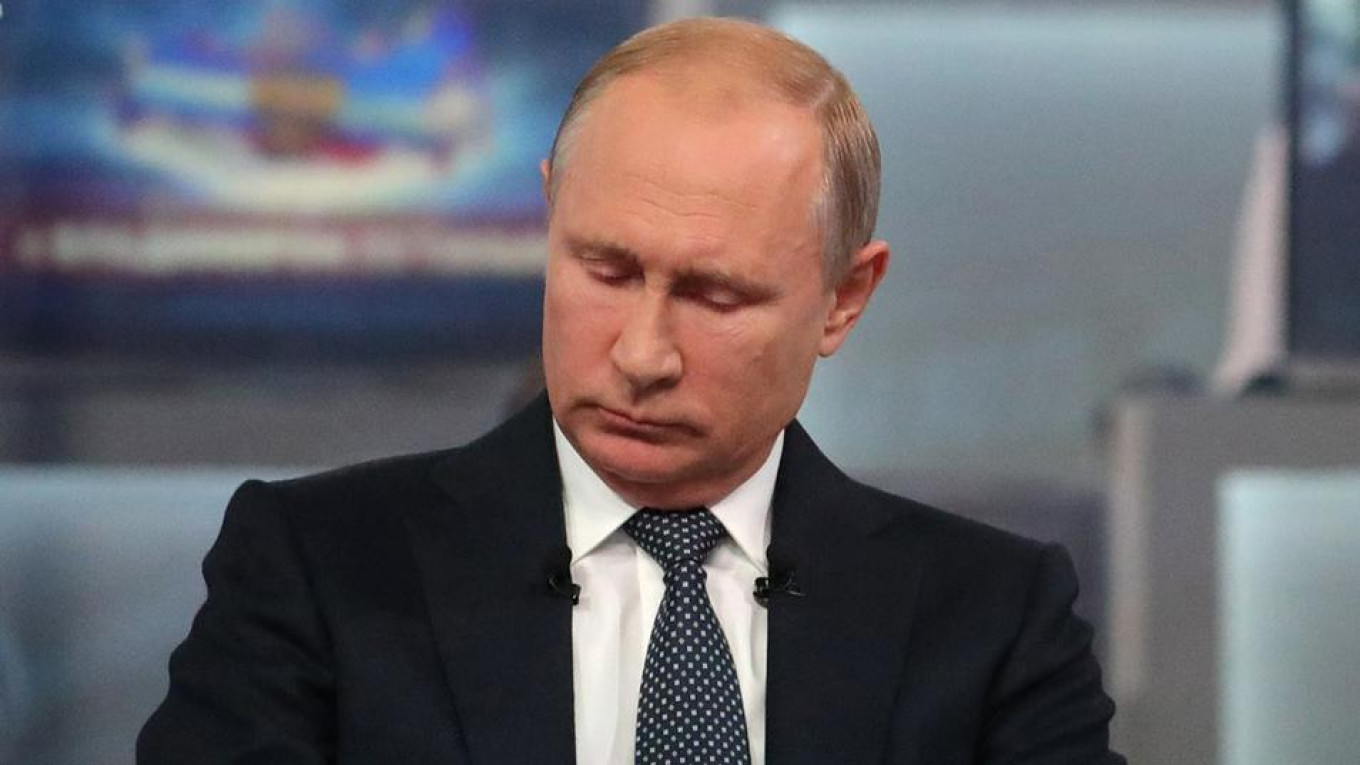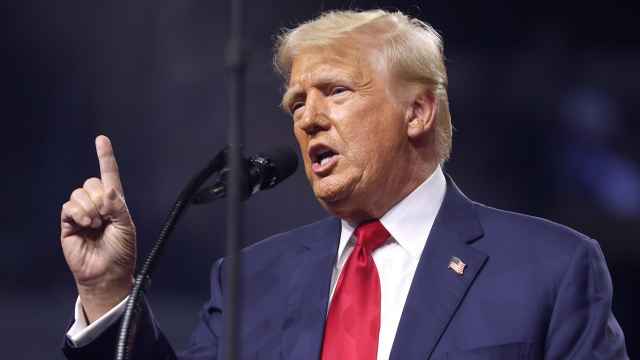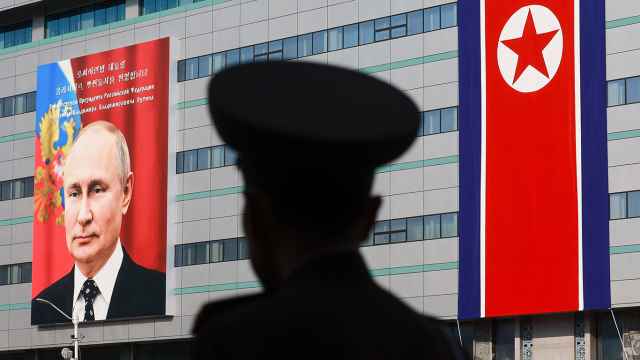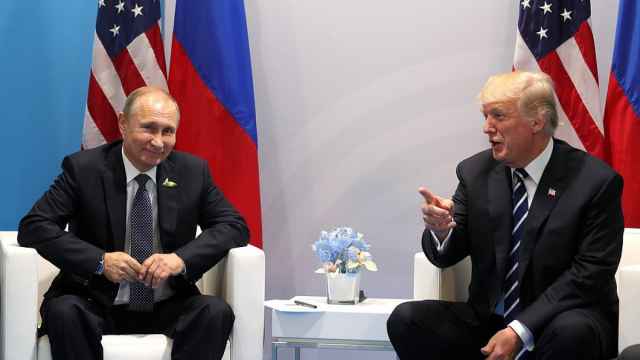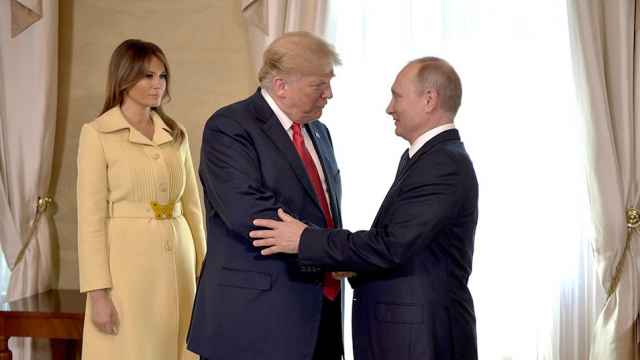As U.S. President Donald Trump and North Korean leader Kim Jong Un hurtle precariously toward their meeting in Singapore on June 12, Russia has found itself on the sidelines of perhaps the most serious attempts to resolve the international security crisis of the century.
Moscow has looked on with apprehension ever since Trump’s surprise decision on March 8 to meet with the North Korean leader and the subsequent steady warming of relations between Washington and Pyongyang. This coming together is perhaps all the more surprising given that not too long ago, Trump and Kim were sparring on Twitter and the U.S. was accusing Russia of helping Pyongyang circumvent international sanctions.
Washington’s rhetoric on a deal with North Korea is nothing if not opportunistic. It is pushing for the complete and irreversible denuclearization of North Korea in exchange for the normalization of ties, lifting of sanctions as well as security guarantees and a peace treaty to formally end the 1950-53 Korean War.
The United States has created the impression that this North Korean settlement would be strictly a bilateral affair, perhaps including South Korea, whose president has been shamelessly overselling an imminent breakthrough.
This scenario poses an existential threat to the Kremlin’s elaborate narrative that Russia, under Vladimir Putin, is re-emerging as a great world power with a decisive say on every major global issue.
Even more ominous for Russia are some of the ideas floated in Washington about its guarantees to North Korea, including extending the U.S. nuclear umbrella over South Korea to the north. For Russia, this raises the unpleasant specter of an emboldened U.S. security position in Northeast Asia at the expense of the Kremlin and China.
North Korean leaders have never suggested they are ready to accept Washington’s terms for speedy denuclearization. Nor does Moscow believe that North Korea would give up their nuclear deterrent. It is, after all, the ultimate guarantee of the regime’s survival.
Russia is highly skeptical of a denuclearized North Korea. The Kremlin now believes that North Korea’s small nuclear deterrent against the U.S. would be stabilizing and eventually lead to a more balanced regional order.
What’s more, until March 8, Russia and China believed the North Korean settlement would unfold in accordance with their “double freeze” strategy, first proposed by the countries in July last year. This phased and multilateral approach would have allowed Moscow and Beijing to shape the contours of the agreement at every stage.
That plan was quickly sidelined when Kim and Trump gushed over each other. And when Moscow and Beijing detected Pyongyang's intent to establish its own security relationship with the United States, the great powers sprung into action.
China was more successful. Beijing brought Kim twice to China for meetings with Xi Jinping, general secretary of the communist party of China, to reaffirm his preference for a phased approach. This left Putin dangerously close to being irrelevant at this historic moment, especially after his repeated efforts to meet with Kim ahead of the Trump meeting were rebuffed.
This left the Kremlin with no choice but to dispatch Foreign Minister Sergei Lavrov to Pyongyang in a somewhat desperate attempt to reinsert Russia into the negotiating process.
But North Korea would not confirm Lavrov’s meeting with Kim until the last minute. And a brilliant plan to arrange for a trilateral meeting for Putin and China’s leader with Kim at the SCOO summit in China on June 9-10, which would have upstaged the meeting with Trump in Singapore, ultimately fizzled.
It is not so much that Moscow wants U.S. diplomacy with North Korea to fail. Rather, it does not want it to succeed without Russia. To that end, Putin and Lavrov have been careful not to publicly undermine U.S. efforts, despite Trump’s concerns to the contrary.
After all, Moscow is betting that should Trump’s rendezvous with Kim be declared “a historic success,” nothing in the world will stop Trump from rushing into another “historic summit” with Putin.
Vladimir Frolov is a Russian columnist and politcal analyst. The views expressed in opinion pieces do not necessarily relfedt the position of The Moscow Times.
A Message from The Moscow Times:
Dear readers,
We are facing unprecedented challenges. Russia's Prosecutor General's Office has designated The Moscow Times as an "undesirable" organization, criminalizing our work and putting our staff at risk of prosecution. This follows our earlier unjust labeling as a "foreign agent."
These actions are direct attempts to silence independent journalism in Russia. The authorities claim our work "discredits the decisions of the Russian leadership." We see things differently: we strive to provide accurate, unbiased reporting on Russia.
We, the journalists of The Moscow Times, refuse to be silenced. But to continue our work, we need your help.
Your support, no matter how small, makes a world of difference. If you can, please support us monthly starting from just $2. It's quick to set up, and every contribution makes a significant impact.
By supporting The Moscow Times, you're defending open, independent journalism in the face of repression. Thank you for standing with us.
Remind me later.



